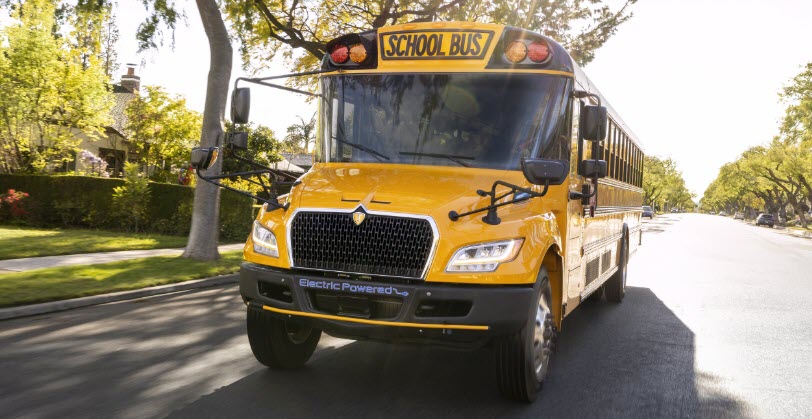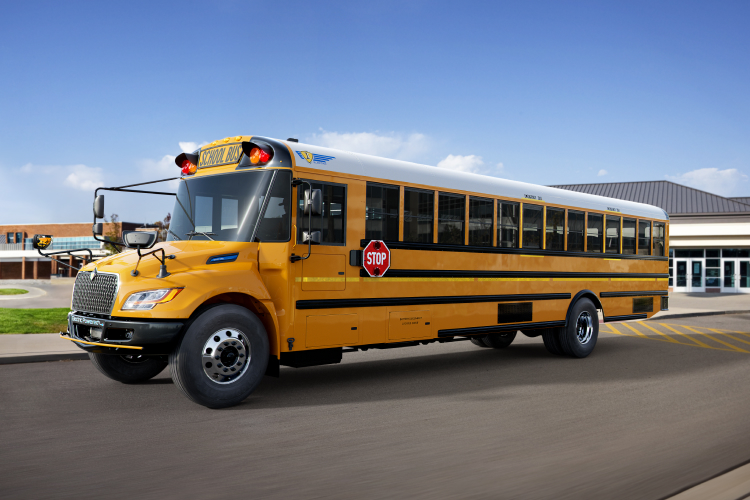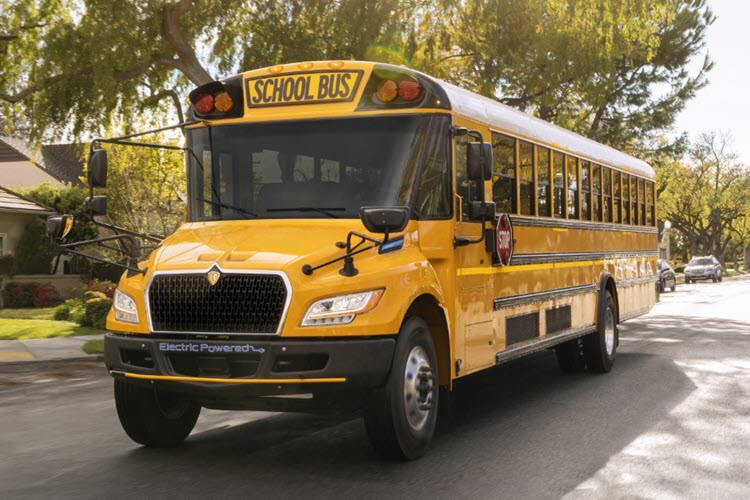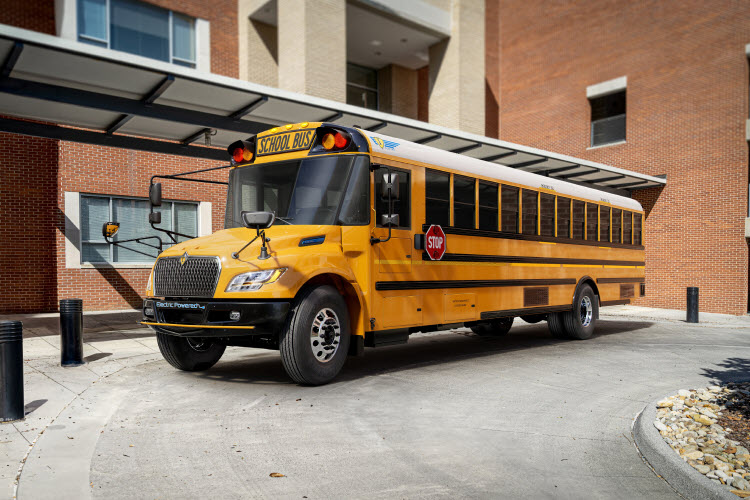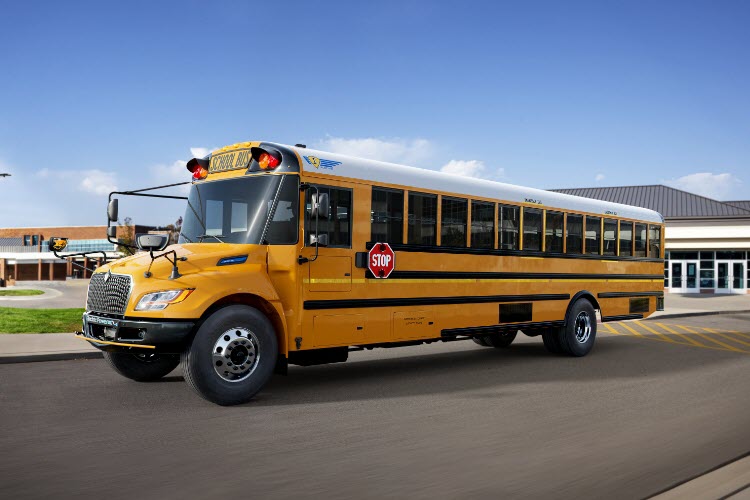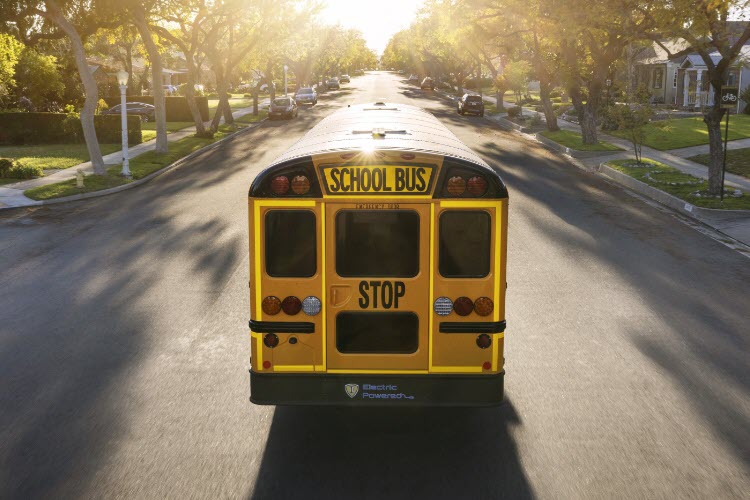Uncover the Top School Bus Trends for 2024
The school transportation landscape saw many changes and challenges in 2023. With declining ridership, rising fuel prices, the move toward zero-emission and driver shortages in many districts, schools are seeking solutions to better serve students. Let’s take a quick look at the four top school bus trends for 2024.
Electric School Bus Growth
Electric school buses will continue to play a central role in school district efforts to transition to a more sustainable zero-emission future. Prompted by funding from programs like the EPA Clean School Bus (CSB) Program as well as the growth of zero-emission rules from states adopting California Air Resource Board standards, electric school bus penetration is sure to accelerate.
Although electric school buses currently account for a small percentage of school transportation vehicles nationwide, the segment is expected to grow quickly. According to the Electric School Bus Data Dashboard1, at the end of 2023 the United States had 1,862 electric school buses on the road—more than triple the count in 2022. Looking ahead, over 6,000 electric school buses have been ordered or awarded funding to purchase as of December 2023.
With over two million real-world electric vehicle miles driven across all our brands, IC Bus® is a leader in helping school fleets electrify. While making the switch to electric is exciting, it can also be challenging. To help make the transition smooth, IC Bus provides a complete electric bus solution and guides fleet managers through the process with:
- Discovery workshops to uncover electrification needs
- Expert guidance to develop hardware, infrastructure and charging plans
- Onboarding for the entire team to hit the road and maximize uptime
See how much your school district could save by switching to a zero-emission school bus—check out this Operating Cost Calculator.
New Ways to Recruit Drivers
In 2024, school districts across the country are expected to continue to face driver shortages. At the start of the 2023 school year, school bus driver employment in K–12 schools had decreased 15.1% when compared with September 2019 employment levels, according to an article from the Economic Policy Institute2. At the same time, student enrollment has grown substantially, leading to a need for more school bus drivers.
Districts have taken many different approaches to reduce driver turnover and improve retention. To reduce distractions for drivers, some schools have added bus monitors to help manage rider behavior, increase safety and ensure that drivers can stay focused on the road.
One often overlooked talent pool for driver recruitment is military veterans. Veterans come from a field where time management, teamwork and communication are essential, all of which are valuable skills for bus drivers. Retirees looking to stay active and engaged with their community also find bus driving to be a great option.
With nights, weekends and school vacation time off, bus driving can be a terrific fit for folks who want to supplement their income with a second career or a better work-life balance. Parents with school-age children also enjoy having a job on the same schedule as their children.
One principal technique to help improve retention rates is to make the driving experience for drivers as stress-free and efficient as possible. DriverFirst™ is the IC Bus design philosophy for creating a working environment that puts drivers in a position to succeed. Using input from bus drivers, IC Bus completely redesigned the instrument panel and driver seating area to create a virtual command center where everything the driver needs is within arm’s reach, helping increase driver comfort and control.
Reducing noise levels is another way to help improve the driving experience and retention rates. A typical diesel bus can be as loud as 95 decibels. This adds both stress and distraction to the driving experience—especially when the voices of riders rise to overcome engine noise. The electric drivetrain in the IC Bus Electric CE Series bus provides a significantly quieter and smoother ride, creating a more relaxing environment for both riders and drivers—and may help improve driver retention.Deeper Dive Into Tech
School districts will embrace technology even more tightly to enhance service, improve safety and manage fleets more efficiently. The increased adoption of mobility technology apps that allow bus locations to be tracked in real time will lead to a shift in customer expectations. Smart routing systems will use real-time traffic data to avoid traffic and optimize routes on the fly.
Fleet managers will increase their use of tools that leverage telematics information for vehicle management. Services like IC Bus OnCommand® Connection turn raw vehicle health and performance data into actionable insights that help improve uptime and deliver a lower total cost of ownership.
With school bus mobile broadband connectivity now eligible as a Category One service under the Federal Communications Commission’s E-Rate program, on-board WiFi will expand to more school districts. E-Rate funds for mobile broadband includes equipment, installation services, software and data service fees. On-board WiFi is a tech solution that helps achieve multiple goals. In addition to helping students who don’t have reliable home internet access and making it possible for homework to be completed during long rides, on-board WiFi can also reduce the frequency of behavioral incidents and create a safer bus environment. That’s why IC Bus was the industry’s first school bus to come standard with a comprehensive Wi-Fi solution including hardware, software, data and support.
Expanding Training Needs
Ongoing training is an increasingly important part of running a school transportation department. With the widespread adoption of technology to manage passengers and routes, expanded onboard safety technology and evolving crisis response protocols, bus drivers need more training than ever.
Like all transformative technologies, electrifying school fleets will bring significant changes for school districts that are used to internal combustion engine buses. Successfully introducing zero-emission vehicles will require education and training for a number of roles across the school transportation space, including fleet managers, drivers, maintenance technicians and first responders.
Although electric buses are similar in many ways to the diesel buses that staffers are familiar with, there are important differences in the way they are operated, maintained and serviced. For drivers, it is critical to learn how to adapt their driving technique to the unique behavior of electric buses, which have higher torque and regenerative braking systems not present in internal combustion engine buses. Maintenance and repair technicians will need extensive training to work on electric drive systems. IC Bus provides school districts with a complete onboarding process for zero-emission vehicles to ensure the successful planning, deployment and day-to-day operation of electric fleets.
1“Electric School Bus Data Dashboard.” Electric School Bus Initiative, World Resources Institute, electricschoolbusinitiative.org/electric-school-bus-data-dashboard. Accessed 10 Jan. 2024.
2Hickey, Sebastian Martinez, and David Cooper. “The School Bus Driver Shortage Remains Severe: Without Job Quality Improvements, Workers, Children, and Parents Will Suffer.” Economic Policy Institute, 14 Nov. 2023, www.epi.org/blog/the-school-bus-driver-shortage-remains severe-without-job-quality-improvements-workers-children and-parents-will-suffer.
Exciting Changes Ahead
With the expansion of zero-emission buses across school fleets nationwide, technology solutions delivering exciting new capabilities and an increasing need for driver and service technician training, the key theme for 2024 is growth. IC Bus is proud to play a leading role across these trends with our Electric CE Series bus, OnCommand® Connection remote diagnostics solution and comprehensive training services.

